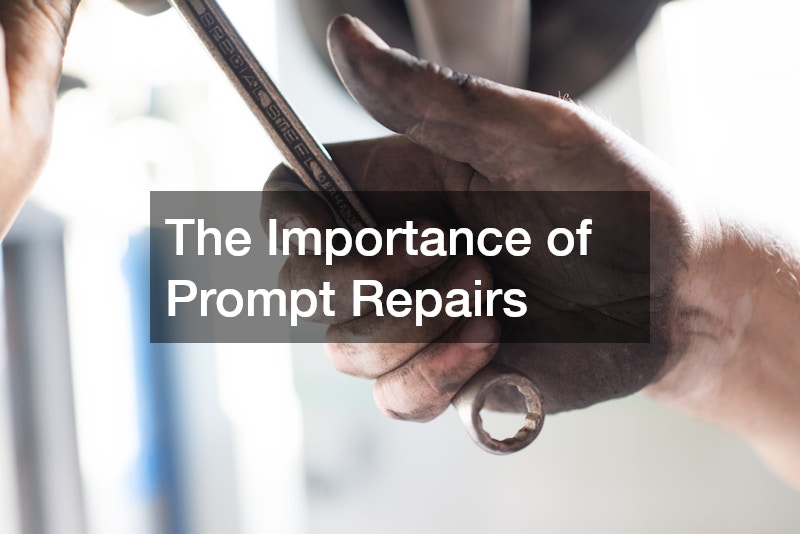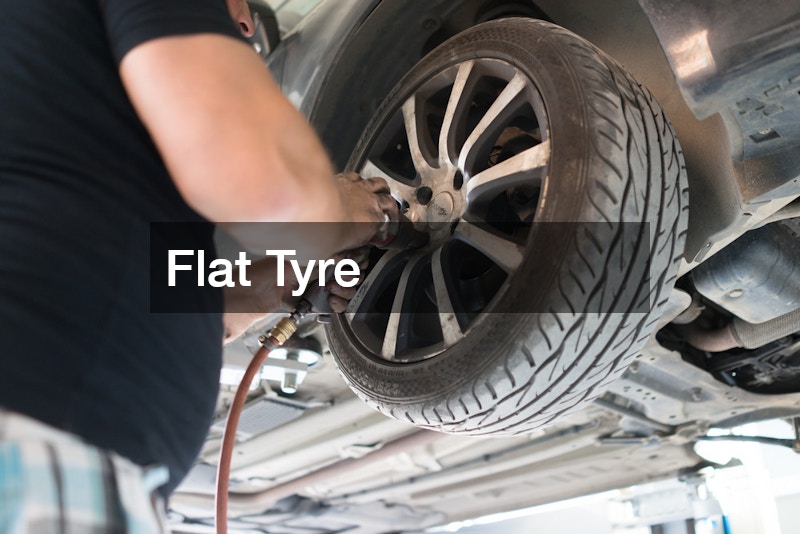If you need transportation and prefer to travel independently, investing in a car is a great decision. It’s important to familiarise yourself with the most common car problems, regardless of what type of vehicle you decide to buy. This way, you will be less likely to be caught off guard or overwhelmed by a new problem.
Malfunctioning Sensors
Sensors play a crucial role in the functioning of modern vehicles, whether you’re driving an electric car or a petrol-powered one. These sensors monitor various systems within the car, helping to ensure that everything from engine performance to safety features operates smoothly. Unfortunately, sensors can malfunction, and when they do, diagnosing the cause of the problem can be tricky, particularly with newer electric vehicles (EVs) and modern petrol cars. These vehicles rely on a range of sensors, making it more complex to pinpoint the source of the issue.
Types of Sensors and Their Roles
Modern vehicles are equipped with various types of sensors, such as oxygen sensors, mass airflow sensors, tyre pressure sensors, and temperature sensors, each serving a specific function. In EVs, sensors are integral to systems like battery management and regenerative braking, while in petrol-powered cars, sensors regulate engine functions and safety systems. When one or more of these sensors fails, it can lead to a cascade of issues that affect your vehicle’s performance and safety.
What to Do if You Suspect a Faulty Sensor
If you suspect that a sensor is malfunctioning, it’s important not to ignore it. Faulty sensors can trigger warning lights, such as the check engine light or ABS warning light, indicating that something isn’t right. However, diagnosing a sensor issue isn’t always straightforward, especially if the warning is vague or multiple sensors are involved. In these cases, it’s advisable to consult a mechanic or an electrician who specialises in automotive electrical systems. They will have the diagnostic tools needed to accurately identify the problem and recommend a solution.
The Risks of Sensor Malfunction
Ignoring a malfunctioning sensor can lead to several issues that impact both the safety and efficiency of your vehicle. Some of the potential risks include:
- Reduced Fuel Efficiency: A faulty sensor, such as an oxygen sensor, can cause your engine to use more fuel than necessary. This can result in higher fuel consumption and increased costs at the pump.
- Erratic Engine Performance: Sensors that monitor engine functions, like the mass airflow sensor, can cause performance issues if they fail. You might notice rough idling, poor acceleration, or unusual engine noises.
- Transmission Problems: Some sensors are involved in the functioning of the transmission system. If a transmission sensor malfunctions, it could lead to poor shifting, delayed gear changes, or even total transmission failure in severe cases.
- Inaccurate Readings and Dashboard Alerts: Malfunctioning sensors may cause your vehicle’s dashboard readings to be inaccurate. For example, a faulty speedometer sensor can result in incorrect speed readings, while a malfunctioning ABS sensor may trigger false warnings. These errors can compromise safety and make it harder to monitor your vehicle’s condition.
- Safety Features Malfunctioning: Modern vehicles are equipped with sensors that control key safety systems, such as airbags and anti-lock braking systems (ABS). If these sensors fail, it could lead to a situation where critical safety features are not available when you need them most, increasing the risk of an accident.
The Importance of Prompt Repairs

Given the range of issues that can arise from malfunctioning sensors, it’s important to address the problem as soon as possible. Many modern vehicles have built-in diagnostic systems that can alert you to issues, but relying solely on these alerts is not enough. Early intervention can prevent a minor sensor problem from escalating into a more costly and potentially dangerous situation. A qualified mechanic or electrician will be able to assess the issue and ensure that your vehicle is repaired correctly, restoring its performance and safety.
By staying vigilant and proactive in addressing sensor issues, you’ll help ensure that your vehicle remains reliable and efficient for the long term.
Dirty Air Filter
A dirty air filter is a common yet often overlooked issue that can affect any vehicle, regardless of its make, model, or age. The air filter in your car plays a crucial role in ensuring that clean air reaches the engine, enabling it to perform optimally. Whether you’re driving a traditional petrol vehicle, a diesel, or even an electric car (which still require air intake for cabin air filters), a clogged or dirty air filter can cause a range of problems that affect the overall performance of your vehicle.
The air filter traps dirt, debris, and other contaminants from the air before it enters the engine, helping to maintain engine efficiency and longevity. If the air filter becomes clogged or dirty, it can’t perform this task effectively, meaning your engine may not receive the clean, unrestricted airflow it needs to run smoothly.
How a Dirty Air Filter Affects Your Vehicle
- Reduced Fuel Efficiency: One of the primary roles of the air filter is to ensure that the right amount of air is mixed with fuel for combustion. A dirty filter can restrict airflow, leading to an imbalance in the air-fuel mixture. As a result, the engine has to work harder to achieve the same level of performance, which can decrease fuel efficiency. You might notice that your vehicle consumes more fuel than usual, leading to higher running costs.
- Poor Acceleration: A restricted air filter can limit the amount of air that flows into the engine, which in turn affects the engine’s ability to generate the power needed for acceleration. This can make your car feel sluggish when you press the accelerator, and you may experience hesitation or a lack of power during overtaking or rapid acceleration.
- Engine Misfires and Rough Idling: A dirty air filter can cause the engine to misfire, especially under heavy load or during acceleration. This happens because the engine isn’t getting the proper amount of air, which is essential for smooth combustion. In addition to misfiring, you might experience rough idling, where the engine seems to struggle or vibrate when the car is stationary.
- Increased Exhaust Emissions: A dirty air filter can lead to incomplete combustion, which can cause your vehicle to emit more exhaust fumes than usual. This can result in higher emissions and, in some cases, a noticeable increase in the smoke coming from the exhaust pipe. It could also cause the vehicle to fail an emissions test, which may be required for registration in some states or territories.
- Check Engine Light: In some cases, a dirty air filter can trigger your vehicle’s check-engine light. This is particularly likely if the clogged filter affects sensors, such as the mass air flow (MAF) sensor, which measures the amount of air entering the engine. When this sensor detects irregular readings due to restricted airflow, it may cause the check-engine light to appear on the dashboard. Ignoring the warning could lead to more serious engine problems down the road.
- Potential Engine Damage: Over time, the strain caused by a dirty air filter can lead to long-term damage to engine components. The increased effort to process air and fuel may cause the engine to overheat, and if debris is allowed to enter the engine, it can lead to premature wear of internal parts. This can eventually result in costly repairs or even engine failure.
Maintaining a Clean Air Filter
Maintaining a clean air filter is a simple yet effective way to ensure the long-term health of your vehicle’s engine. Most manufacturers recommend replacing the air filter every 12,000 to 15,000 kilometres, but this can vary depending on driving conditions. If you frequently drive in dusty or polluted environments, you may need to replace the filter more often.
Signs that Your Air Filter Needs Replacing:
- Decreased fuel efficiency
- Reduced engine power or acceleration
- Unusual sounds from the engine, such as coughing or sputtering
- A noticeable increase in exhaust emissions
- A drop in engine performance, such as rough idling
By regularly checking and replacing the air filter, you can avoid the risks associated with a clogged filter, ensuring your vehicle runs efficiently and reliably for years to come. Keep in mind that a small investment in maintaining the air filter can save you from more costly repairs and improve your car’s overall performance.
Old Spark Plugs
Spark plugs are an integral part of almost any vehicle, including cars and trucks. Spark plugs have two functions: to ignite combustion and to move heat away from the central combustion chambers of vehicles. It may be difficult to start the vehicle if you have old spark plugs. You will need to wait until this issue has been properly diagnosed and inspected. You may want to consult a lawyer if you think you were sold a vehicle with outdated spark plugs. If you cannot get a free repair or replacement, you might have been sold a defective vehicle.
Signs That It’s Time To Call A Lawyer
If you find yourself in a situation where a salesman or dealership refuses to negotiate or help you with an automobile purchase that you made recently, you may want to hire a lawyer to protect your rights. An attorney can assist you in negotiating a resolution with someone who sold you a car with faulty spark plugs. They can also mediate the situation. A lawyer can assist you if you’re entitled to a refund or if the warranty on a car you bought is not being honoured.
Burning Motor Oil
It can be overwhelming to discover that your motor oil is burning, especially if it’s not something you do often. It may be worth requesting a professional to inspect your vehicle if you notice burning motor oil. Overheating engines are some of the signs your vehicle is burning motor oil. Other signs include an oil warning indicator or light, a burning smell, and excessive smoke.
Brakes that Are Not Working Properly
Faulty brakes should be a priority when you’re learning about the most common vehicle problems. You may have a case if you were sold a car with brakes that weren’t reliable or had faulty brakes. This must be resolved in court. Finding the right personal injury lawyer can help you if you have been injured or hurt in an accident due to faulty brakes.
Flat Tyre

The most common problems that vehicles face are not limited to internal or electrical issues. Flat tyres, whether electrical or petrol-powered, are extremely common. There are many ways that a flat tyre can occur on a car today, whether you need a wheel alignment or hit a pothole. It is important to fix a flat tyre as soon as possible to prevent permanent damage to the wheel or other parts of the vehicle.
Flashing Warning Lights
If you want to learn about the most common vehicle problems, you should also understand what electrical issues may arise based on your car or truck. You may need to consult a mechanic or specialist if you see warning lights flashing in your car but don’t know why. If you are on a long trip and the warning lights suddenly appear, or you are visiting an auto parts store, you should seek immediate assistance from a mechanic. Flashing warning lights that are not fixed can cause further electrical issues with your car, including its built-in fixtures and features.
Cracked Windscreen
It’s not uncommon to have a cracked windscreen in your vehicle at some point during the lifetime of driving. The cause of a cracked windscreen is often hail and heavy storms, but it can also be caused by falling debris or rocks that hit your car while driving. You can contact a professional near you if you find a crack in the windscreen of your car or truck. They will be able to provide you with the window service you require for the vehicle type you were driving at the time the crack occurred.
Leaking Wiper Fluid
Leaking wiper fluid is a common problem with vehicles of all types and makes. When you discover that your car is leaking, it can be difficult to maintain a steady level of wiper fluid. This can lead to disruptions when you need it most. You can work with a mechanic or auto shop you trust to find out more about the best window products for your vehicle or to determine the cause of a wiper fluid leak.
Failing Alternator
The alternator in your vehicle is one of its most important parts, no matter what type of vehicle you drive or the problem(s) that you’re experiencing. Well-maintained alternators are one of the most common problems that modern cars have. A failing alternator is a disaster for any car or truck owner, especially if the vehicle isn’t covered by a warranty.
Alternators are used to convert mechanical energy into electrical energy, also called AC energy or alternating current. Your alternator powers electronics, such as dashboard information or even the radio in your car. You may want to consult an attorney if you recently bought your car and discover your alternator is faulty.
The Risks of an Alternator Failing
It is vital that you always have a working alternator in your vehicle. This applies to all vehicles, including hybrids and electric cars. If your alternator fails or needs to be replaced, you could face serious risks such as damaging essential electronic components in your car or truck. The alternator can cause damage to many components in your car, including the water pump and power steering.
Why Hiring an Attorney May Be the Right Decision for You
You may wish to inquire about your options if you recently bought a car with a warranty and are experiencing problems with the alternator. If your warranty isn’t being honoured, or you feel that you are being ignored, you may want to seek legal advice. A lawyer will help you understand your legal options, and they can act as a mediator to make communication with potential defendants easier.
You can gain valuable insight into your car or truck by learning the most common issues that affect vehicles today, no matter what year, make, or model you drive. It is also important to understand the basic mechanics of cars and how they work. This will help you maintain your vehicle and diagnose problems as they occur, instead of waiting until an emergency or breakdown happens. You will be less stressed or confused if you know how to identify common issues with the vehicles you use or own.


